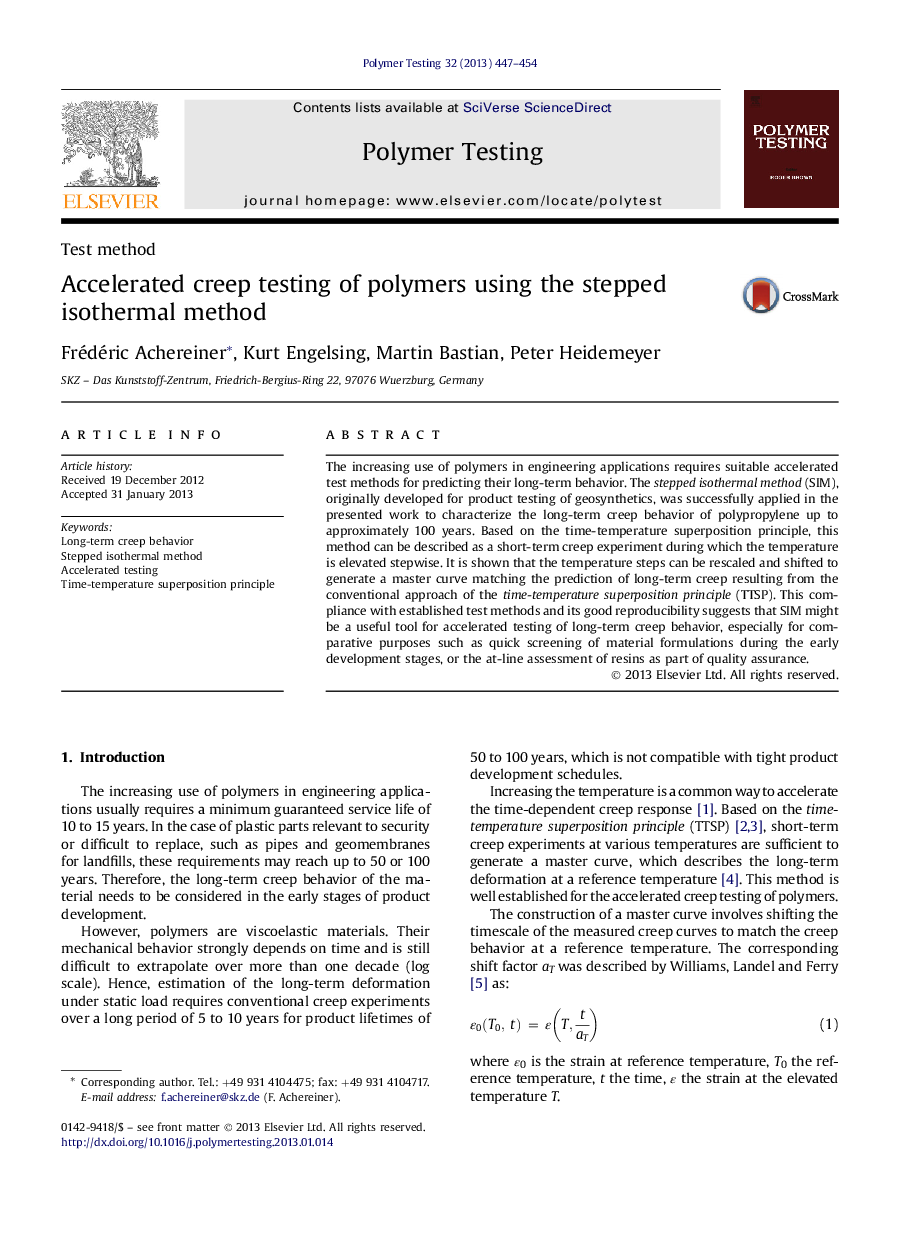| Article ID | Journal | Published Year | Pages | File Type |
|---|---|---|---|---|
| 5206705 | Polymer Testing | 2013 | 8 Pages |
Abstract
The increasing use of polymers in engineering applications requires suitable accelerated test methods for predicting their long-term behavior. The stepped isothermal method (SIM), originally developed for product testing of geosynthetics, was successfully applied in the presented work to characterize the long-term creep behavior of polypropylene up to approximately 100 years. Based on the time-temperature superposition principle, this method can be described as a short-term creep experiment during which the temperature is elevated stepwise. It is shown that the temperature steps can be rescaled and shifted to generate a master curve matching the prediction of long-term creep resulting from the conventional approach of the time-temperature superposition principle (TTSP). This compliance with established test methods and its good reproducibility suggests that SIM might be a useful tool for accelerated testing of long-term creep behavior, especially for comparative purposes such as quick screening of material formulations during the early development stages, or the at-line assessment of resins as part of quality assurance.
Related Topics
Physical Sciences and Engineering
Chemistry
Organic Chemistry
Authors
Frédéric Achereiner, Kurt Engelsing, Martin Bastian, Peter Heidemeyer,
